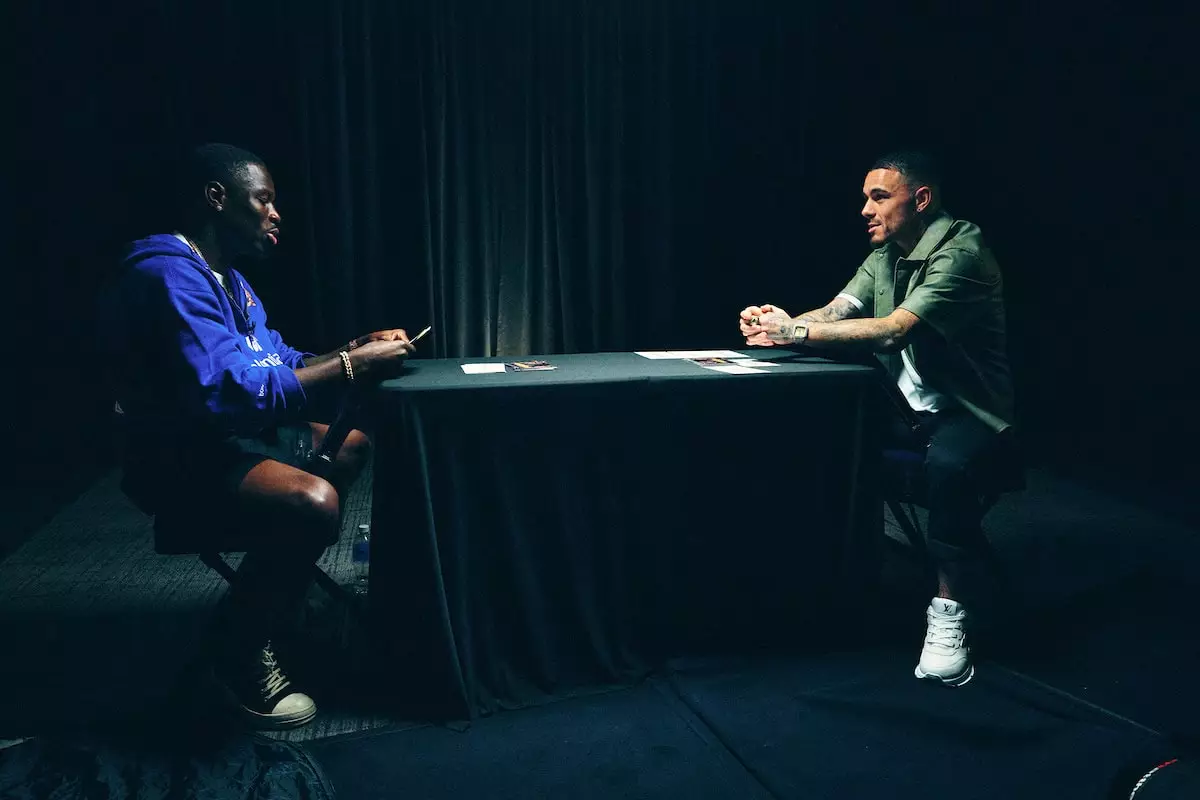As June 14th approaches, boxing fans find themselves buzzing with anticipation and skepticism for the bout between IBF light welterweight champion Richardson Hitchins and former unified lightweight champion George Kambosos Jr. Scheduled to take place at the illustrious Madison Square Garden, this fight seems to oscillate between excitement for the spectacle and doubts regarding its competitiveness. Many believe that Kambosos, with a record that has seen him falter recently, is ill-suited to pose a legitimate challenge to Hitchins, who enters the ring with an impressive record of 19-0. Yet, beneath the surface of this perceived mismatch lies an intriguing narrative of potential and redemption.
Kambosos’ Imperfect Path
Kambosos, despite his setbacks—including a notable knockout loss to Vasily Lomachenko and defeats to Devin Haney—remains a polarizing figure in boxing. His victory over Teofimo Lopez in 2021 is often debated as a fluke, yet that singular moment of glory continues to haunt him. Kambosos is returning to the ring with a chance to re-establish his legacy and reconnect with a fan base eager for another taste of success. For him, this matchup could be the proverbial golden ticket to reclaiming his status and financial security in the Australian market. But will nostalgia be enough, given his recent struggles?
Hitchins: A Tactical Reasoning for Choosing Kambosos
On the other side of the ring, Hitchins has the opportunity to defend his title in a bout that, from a tactical perspective, appears to benefit him. Kambosos fits the mold of a less demanding opponent, allowing Hitchins to display his skill set without the relentless pressure that other fighters, like Subriel Matias, would apply. It raises questions of authenticity; while a win against Kambosos would bolster Hitchins’ profile, it could also be perceived as a hollow victory, one devoid of the heft that comes from overcoming another top-notch competitor.
Hitchins’ statements leading up to the fight reflect an undercurrent of brash confidence—his claims of being “better than Devin Haney” may bolster his bravado, but they also betray a certain level of insecurity. When a fighter feels the need to assert their superiority over names like Lomachenko or Haney, it indicates an awareness of the challenges that lie within convincing not just the audience but themselves of their own prowess.
The Financial Stakes of the Fight
The smattering of side bets, such as the $50,000 wagered between the two fighters, adds an exciting financial layer to an already intriguing matchup. Kambosos’ subtle reference to sitting on millions hints at the high-stakes nature of boxing—where fortunes can shift through sheer willpower and determination. This financial context fuels a narrative that transcends mere athletic competition; it’s about legacy, survival in the sport, and re-establishing relevance.
As Kambosos strives to reclaim the glory of his earlier victories, and Hitchins seeks to validate his rising star status, the backdrop of Madison Square Garden becomes a canvas for narratives that blend aspiration, resilience, and the ever-pressing question: who leaves with their reputation—and wallet—intact? The complexities surrounding their histories and motivations create a rich tapestry, ensuring that even if the fight fails to engage the public in the buildup, the unfolding drama promises to be anything but dull.


Leave a Reply